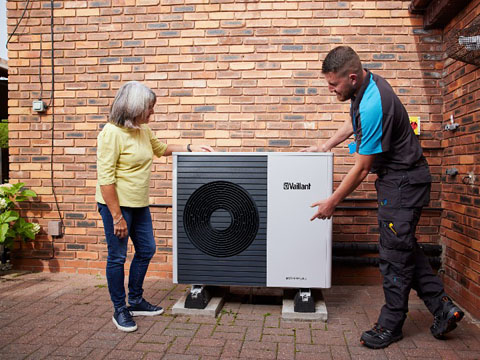Heat pumps are emerging as one of the most efficient and sustainable solutions for year-round heating and cooling. These systems leverage the principles of thermodynamics to transfer heat rather than generate it through combustion, making them highly energy-efficient and environmentally friendly. Unlike traditional heating systems, which burn fossil fuels to generate heat, heat pumps move heat from one place to another. In winter, they extract warmth from the outside air, even when temperatures are cold, and bring it indoors. During the summer, the process is reversed, and they function as air conditioners by transferring indoor heat outside. One of the main advantages of heat pumps is their ability to provide both heating and cooling in a single system. This versatility makes them ideal for a wide range of climates, especially in regions that experience temperature fluctuations throughout the year. In colder climates, modern heat pumps are equipped with advanced technology, such as defrost cycles and enhanced compressors, which allow them to continue working efficiently even at low outdoor temperatures. This makes them a reliable option for heating homes without relying on natural gas or electric resistance heating, both of which can be costly and less environmentally friendly.

The efficiency of heat pumps is reflected in their high coefficient of performance COP, which measures the ratio of heat output to energy input. For every unit of electricity consumed, a heat pump can provide multiple units of heat, making it much more efficient than traditional heating methods. This efficiency translates into significant cost savings over time. For example, while a conventional electric heater may convert all its energy into heat, heat pumps can deliver up to three or four times the amount of heat for the same amount of energy, reducing electricity bills and carbon footprints. Another significant benefit of heat pump is their minimal environmental impact. Since they do not rely on fossil fuels, they emit significantly less carbon dioxide and other greenhouse gases compared to traditional heating systems. Moreover, heat pump technology continues to improve, with new models using refrigerants that have lower global warming potential, further reducing their environmental footprint. As governments and homeowners increasingly prioritize sustainability, heat pumps have become a key component in the transition toward greener, low-carbon living.
Furthermore, the installation of heat pumps can contribute to a home is overall energy efficiency. They can be integrated with other renewable energy sources, such as solar panels, to create a highly sustainable system. The synergy between solar energy and heat pumps Jnod can reduce reliance on the grid and lower utility costs even further. As heat pump technology becomes more affordable and accessible, their popularity is expected to grow, especially in regions where electricity is generated from renewable sources. In conclusion, heat pumps offer a sustainable, energy-efficient, and versatile solution for heating and cooling homes throughout the year. With the ability to provide year-round comfort, lower utility bills, and reduced environmental impact, heat pumps are poised to play a central role in the future of residential and commercial heating systems.
